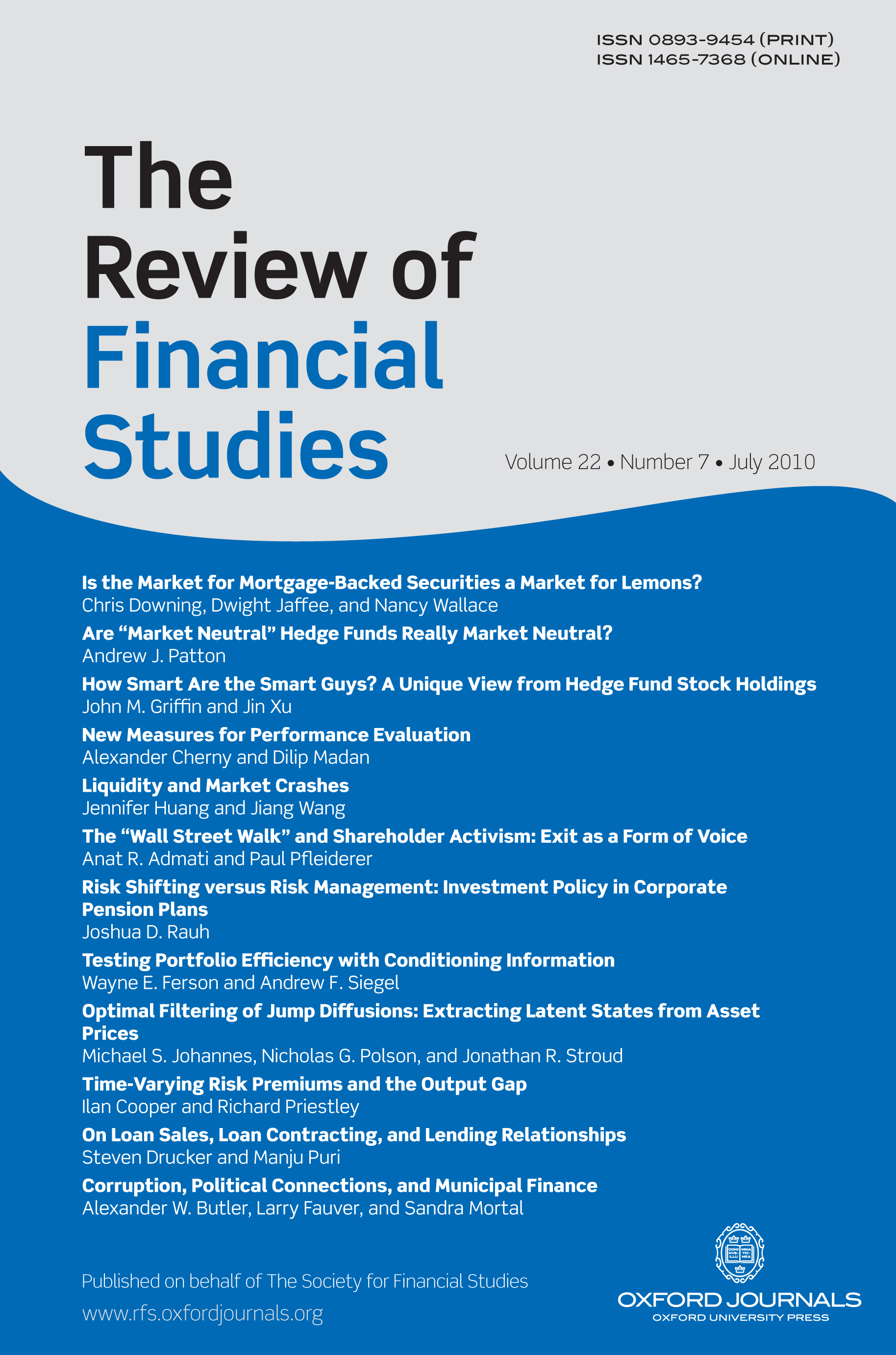
Size and Focus of a Venture Capitalist's Portfolio
We take a portfolio approach to analyze the investment strategy of a venture capitalist (VC) and show that portfolio size and scope affect both the entrepreneurs' and the VC's incentives to exert effort. A small portfolio improves entrepreneurial incentives because it allows the VC to concentrate the limited human capital on a smaller number of startups, adding more value. A large and focused portfolio is beneficial because it allows the VC to reallocate the limited resources and human capital in the case of startup failure and allows the VC to extract greater rents from the entrepreneurs. We show that the VC finds it optimal to limit portfolio size when startups have higher payoff potential - that is, when providing strong entrepreneurial incentives is most valuable. The VC expands portfolio size only when startup fundamentals are more moderate and when he can form a sufficiently focused portfolio. Finally, we show that the VC may find it optimal to engage in portfolio management by divesting some of the startups early since this strategy allows him to extract a greater surplus.





